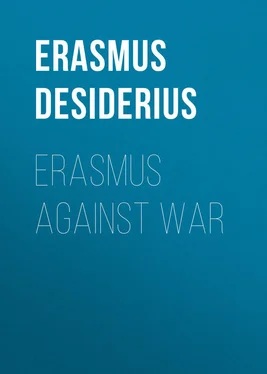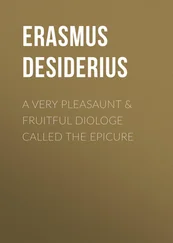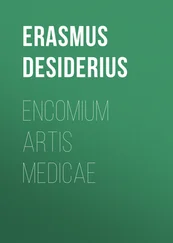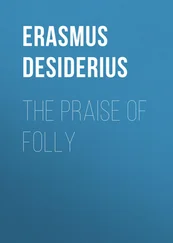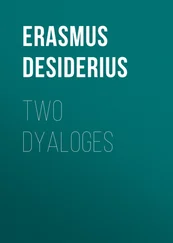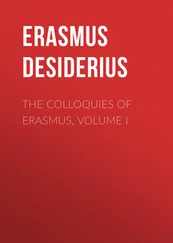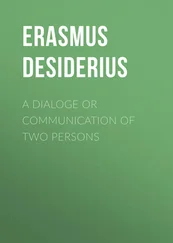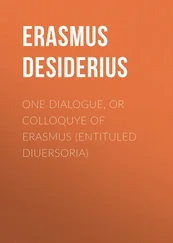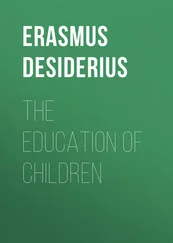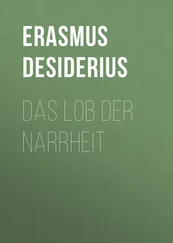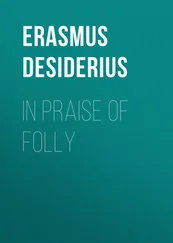Desiderius Erasmus - Erasmus Against War
Здесь есть возможность читать онлайн «Desiderius Erasmus - Erasmus Against War» — ознакомительный отрывок электронной книги совершенно бесплатно, а после прочтения отрывка купить полную версию. В некоторых случаях можно слушать аудио, скачать через торрент в формате fb2 и присутствует краткое содержание. Жанр: foreign_antique, foreign_prose, на английском языке. Описание произведения, (предисловие) а так же отзывы посетителей доступны на портале библиотеки ЛибКат.
- Название:Erasmus Against War
- Автор:
- Жанр:
- Год:неизвестен
- ISBN:нет данных
- Рейтинг книги:3 / 5. Голосов: 1
-
Избранное:Добавить в избранное
- Отзывы:
-
Ваша оценка:
- 60
- 1
- 2
- 3
- 4
- 5
Erasmus Against War: краткое содержание, описание и аннотация
Предлагаем к чтению аннотацию, описание, краткое содержание или предисловие (зависит от того, что написал сам автор книги «Erasmus Against War»). Если вы не нашли необходимую информацию о книге — напишите в комментариях, мы постараемся отыскать её.
Erasmus Against War — читать онлайн ознакомительный отрывок
Ниже представлен текст книги, разбитый по страницам. Система сохранения места последней прочитанной страницы, позволяет с удобством читать онлайн бесплатно книгу «Erasmus Against War», без необходимости каждый раз заново искать на чём Вы остановились. Поставьте закладку, и сможете в любой момент перейти на страницу, на которой закончили чтение.
Интервал:
Закладка:
Desiderius Erasmus
Erasmus Against War
INTRODUCTION
The Treatise on War, of which the earliest English translation is here reprinted, was among the most famous writings of the most illustrious writer of his age. Few people now read Erasmus; he has become for the world in general a somewhat vague name. Only by some effort of the historical imagination is it possible for those who are not professed scholars and students to realize the enormous force which he was at a critical period in the history of civilization. The free institutions and the material progress of the modern world have alike their roots in humanism. Humanism as a movement of the human mind culminated in the age, and even in a sense in the person, of Erasmus. Its brilliant flower was of an earlier period; its fruits developed and matured later; but it was in his time, and in him, that the fruit set! The earlier sixteenth century is not so romantic as its predecessors, nor so rich in solid achievement as others that have followed it. As in some orchard when spring is over, the blossom lies withered on the grass, and the fruit has long to wait before it can ripen on the boughs. Yet here, in the dull, hot midsummer days, is the central and critical period of the year’s growth.
The life of Erasmus is accessible in many popular forms as well as in more learned and formal works. To recapitulate it here would fall beyond the scope of a preface. But in order to appreciate this treatise fully it is necessary to realize the time and circumstances in which it appeared, and to recall some of the main features of its author’s life and work up to the date of its composition.
That date can be fixed with certainty, from a combination of external and internal evidence, between the years 1513 and 1515; in all probability it was the winter of 1514-15. It was printed in the latter year, in the “editio princeps” of the enlarged and rewritten Adagia then issued from Froben’s great printing-works at Basel. The stormy decennate of Pope Julius II had ended in February, 1513. To his successor, Giovanni de’ Medici, who succeeded to the papal throne under the name of Leo X, the treatise is particularly addressed. The years which ensued were a time singularly momentous in the history of religion, of letters, and of the whole life of the civilized world. The eulogy of Leo with which Erasmus ends indicates the hopes then entertained of a new Augustan age of peace and reconciliation. The Reformation was still capable of being regarded as an internal and constructive force, within the framework of the society built up by the Middle Ages. The final divorce between humanism and the Church had not yet been made. The long and disastrous epoch of the wars of religion was still only a dark cloud on the horizon. The Renaissance was really dead, but few yet realized the fact. The new head of the Church was a lover of peace, a friend of scholars, a munificent patron of the arts. This treatise shows that Erasmus, to a certain extent, shared or strove to share in an illusion widely spread among the educated classes of Europe. With a far keener instinct for that which the souls of men required, an Augustinian monk from Wittenberg, who had visited Rome two years earlier, had turned away from the temple where a corpse lay swathed in gold and half hid in the steam of incense. With a far keener insight into the real state of things, Machiavelli was, at just this time, composing The Prince.
In one form or another, the subject of his impassioned pleading for peace among beings human, civilized, and Christian, had been long in Erasmus’s mind. In his most celebrated single work, the Praise of Folly, he had bitterly attacked the attitude towards war habitual, and evilly consecrated by usage, among kings and popes. The same argument had formed the substance of a document addressed by him, under the title of Anti-Polemus, to Pope Julius in 1507. Much of the substance, much even of the phraseology of that earlier work is doubtless repeated here. Beyond the specific reference to Pope Leo, the other notes of time in the treatise now before us are few and faint. Allusions to Louis XII of France (1498-1515), to Ferdinand the Catholic (1479-1516), to Philip, king of Aragon (1504-1516), and Sigismund, king of Poland (1506-1548), are all consistent with the composition of the treatise some years earlier. At the end of it he promises to treat of the matter more largely when he publishes the Anti-Polemus. But this intention was never carried into effect. Perhaps Erasmus had become convinced of its futility; for the events of the years which followed soon showed that the new Augustan age was but a false dawn over which night settled more stormily and profoundly than before.
For ten or a dozen years Erasmus had stood at the head of European scholarship. His name was as famous in France and England as in the Low Countries and Germany. The age was indeed one of those in which the much-abused term of the republic of letters had a real and vital meaning. The nationalities of modern Europe had already formed themselves; the notion of the Empire had become obsolete, and if the imperial title was still coveted by princes, it was under no illusion as to the amount of effective supremacy which it carried with it, or as to any life yet remaining in the mediaeval doctrine of the unity of Christendom whether as a church or as a state. The discovery of the new world near the end of the previous century precipitated a revolution in European politics towards which events had long been moving, and finally broke up the political framework of the Middle Ages. But the other great event of the same period, the invention and diffusion of the art of printing, had created a new European commonwealth of the mind. The history of the century which followed it is a history in which the landmarks are found less in battles and treaties than in books.
The earlier life of the man who occupies the central place in the literary and spiritual movement of his time in no important way differs from the youth of many contemporary scholars and writers. Even the illegitimacy of his birth was an accident shared with so many others that it does not mark him out in any way from his fellows. His early education at Utrecht, at Deventer, at Herzogenbosch; his enforced and unhappy novitiate in a house of Augustinian canons near Gouda; his secretaryship to the bishop of Cambray, the grudging patron who allowed rather than assisted him to complete his training at the University of Paris – all this was at the time mere matter of common form. It is with his arrival in England in 1497, at the age of thirty-one, that his effective life really begins.
For the next twenty years that life was one of restless movement and incessant production. In England, France, the Low Countries, on the upper Rhine, and in Italy, he flitted about gathering up the whole intellectual movement of the age, and pouring forth the results in that admirable Latin which was not only the common language of scholars in every country, but the single language in which he himself thought instinctively and wrote freely. Between the Adagia of 1500 and the Colloquia of 1516 comes a mass of writings equivalent to the total product of many fertile and industrious pens. He worked in the cause of humanism with a sacred fury, striving with all his might to connect it with all that was living in the old and all that was developing in the newer world. In his travels no less than in his studies the aspect of war must have perpetually met him as at once the cause and the effect of barbarism; it was the symbol of everything to which humanism in its broader as well as in its narrower aspect was utterly opposed and repugnant. He was a student at Paris in the ominous year of the first French invasion of Italy, in which the death of Pico della Mirandola and Politian came like a symbol of the death of the Italian Renaissance itself.
Читать дальшеИнтервал:
Закладка:
Похожие книги на «Erasmus Against War»
Представляем Вашему вниманию похожие книги на «Erasmus Against War» списком для выбора. Мы отобрали схожую по названию и смыслу литературу в надежде предоставить читателям больше вариантов отыскать новые, интересные, ещё непрочитанные произведения.
Обсуждение, отзывы о книге «Erasmus Against War» и просто собственные мнения читателей. Оставьте ваши комментарии, напишите, что Вы думаете о произведении, его смысле или главных героях. Укажите что конкретно понравилось, а что нет, и почему Вы так считаете.
